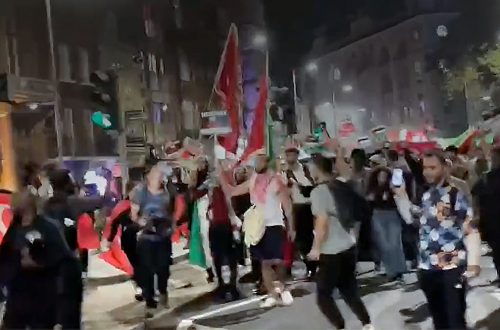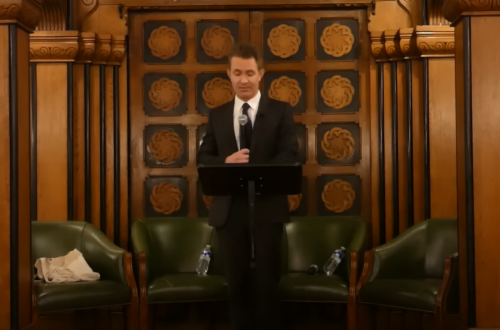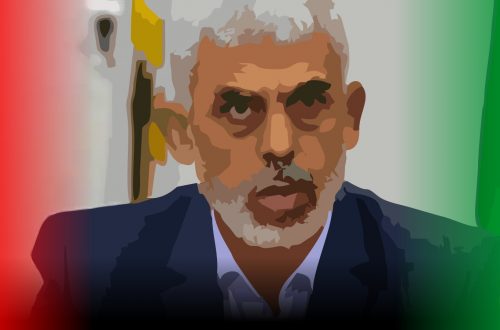Having won the legislative elections, Hamas couped against the Palestinian Authority in Gaza, murdered its opponents, and fired thousands of rockets into Israel. If Hamas had the remotest intention in building a functioning state in Gaza, it could have done so easily. Instead, it produced a crisis which resulted in both Israel and Egypt closing its borders, which in turn strengthened the paramilitary regime’s hold over Gaza.
Gaza’s condition isn’t great. It isn’t great almost entirely because of the nature of the regime which mis-governs it, and the choices that they have made.
However, Gaza is not suffering from anything approaching a major humanitarian crisis. As Ben-Dror Yemini pointed out:
Infant mortality is one of the most important indicators in checking the humanitarian situation. It is clear that the situation in Turkey is worse than it is in the Gaza Strip. Infant mortality in Gaza is 17.71 per thousand; in Turkey it is 24.84. The Gaza Strip is in a much better situation than the global average, which is 44 infants per 1,000 births. It is also better than most of the Arab countries and several South American countries, and is certainly better than Africa.
Life expectancy is another important indicator. And here, life expectancy in Turkey is 72.23, whereas in the Gaza Strip it is 73.68, much higher than the global average of 66.12. In comparison, life expectancy is 63.36 in Yemen, 52.52 in Sudan and 50 in Somalia. These countries are crying out for international attention, for aid, for any rescue ship. But none come.
…
Most inhabitants of the world are worse off than the residents of the Gaza Strip. American aid per capita to the Gaza Strip is 7.5 times higher than aid per capita to Haiti.
It is clear, then, that enterprises like Viva Palestina, the “Freedom Flotilla”, and the activities of the Turkish IHH have little to do with ameliorating the lives of Gazans. Rather, as their political ties and their conduct illustrates, they are the Hamas Solidarity Campaign.
For some reason, there has been a certain reluctance to admit this fact. With the exception of the recent Panorama, the narrative has been that Gaza is starving, that Israel is blocking aid ships from alleviating the humanitarian crisis, and that the any argument to the contrary is wicked lies.
The notion that there is a humanitarian crisis in Gaza, for which Israel is solely responsible, has been pushed hard for some time. However, as the Elder of Ziyon points out, as evidence emerges which has undermined that narrative, the narrative itself has changed:
The mainstream media and NGOs were the the main purveyors of the myth of Gaza was suffering form a humanitarian crisis – a myth that goes back to the early 90s at the very least.
Since the Gaza Mall opened, we have seen on a few occasions the people who have made a living talking about how miserable life is in Gaza take a step back and re-frame their arguments. They cannot deny the truth, but they don’t want to retroactively look like liars – which is what they effectively have been for nearly two decades.
So, one by one, they are reframing the Gaza meme to try to save face and make sure that people still blame Israel for Gaza’s problems.
Gaza is still miserable, these newly-sophisticated and nuanced journalists are saying, but it is not because the Gazans are hungry, or poverty-stricken, or cannot get basic items. Forget all those thousands of articles over the years that we wrote, forget us uncritically quoting Jimmy Carter about how Gazans are “literally starving” or being “starved to death.” No, the problems with Gaza are not so much physical but a state of mind, you see.
Previously, we mentioned Slate’s backtracking, admitting that there is no humanitarian crisis in Gaza and no hunger. Instead, Slate quotes an official, it is a “crisis of dignity.”
The BBC also engaged in a similar ‘reframing’ exercise in December 2008, when it ran a story which argued that although Gazan’s weren’t starving, they were suffering because they ate too much carbohydrate and oil.
This week’s coverage in the New York Times of the Gaza Mall is a case in point. This is Ethan Bronner’s take on it:
For Hamas, and for the Hamas-linked group of local investors behind the enterprise, the two-story mall, with its central air-conditioning and underground parking, has deep symbolic value. It is proof, they say, that despite the Israeli and Egyptian effort to isolate this Palestinian coastal strip, it can develop and thrive. Let the message go out: We will not be defeated.
But symbols are a risky business, and Israel’s fiercest defenders have seized upon the mall for their own purposes as well. Wielding glossy photographs of the new shops, they ask: Is this the land of deprivation that you have heard about? How did they build a mall if no building materials are permitted into Gaza? How badly off can a place be that has just opened up a luxury mall? Those aid flotillas are sailing to the wrong place, they say.
Bronner doesn’t answer these questions or objections at all. Instead, he bypasses them. The Gaza Mall for him is a proud but pathetic symbol of defiance by an embattled people. It isn’t, for example, evidence of the significant wealth and power amassed by the Hamas leadership and its cronies.
But finally – finally! – Bronner fesses up:
But the broader point many of these advocates are making — that the poverty of Gaza is often misconstrued, willfully or inadvertently — is correct. The despair here is not that of Haiti or Somalia. It is a misery of dependence, immobility and hopelessness, not of grinding want. The flotilla movement is not about material aid; it is about Palestinian freedom and defiance of Israeli power.
“Gaza is not poor in the way outsiders think,” said Nida Wishah, a 22-year-old information technology student who was at the mall one recent afternoon. “You can’t compare our poverty with that of Africa.”
For “about Palestinian freedom”, read “assisting Hamas and the Muslim Brotherhood in its goal of creating a trans-national fundamentalist Islamist state”.
For “defiance of Israeli power”, read “determination not to make peace with Israel, but instead to pursue a genocidal, annihilationist war against Jews”.
I find it really shocking to see liberals basically running transparent propaganda for a vicious theocratic regime. Do they think we are stupid?


